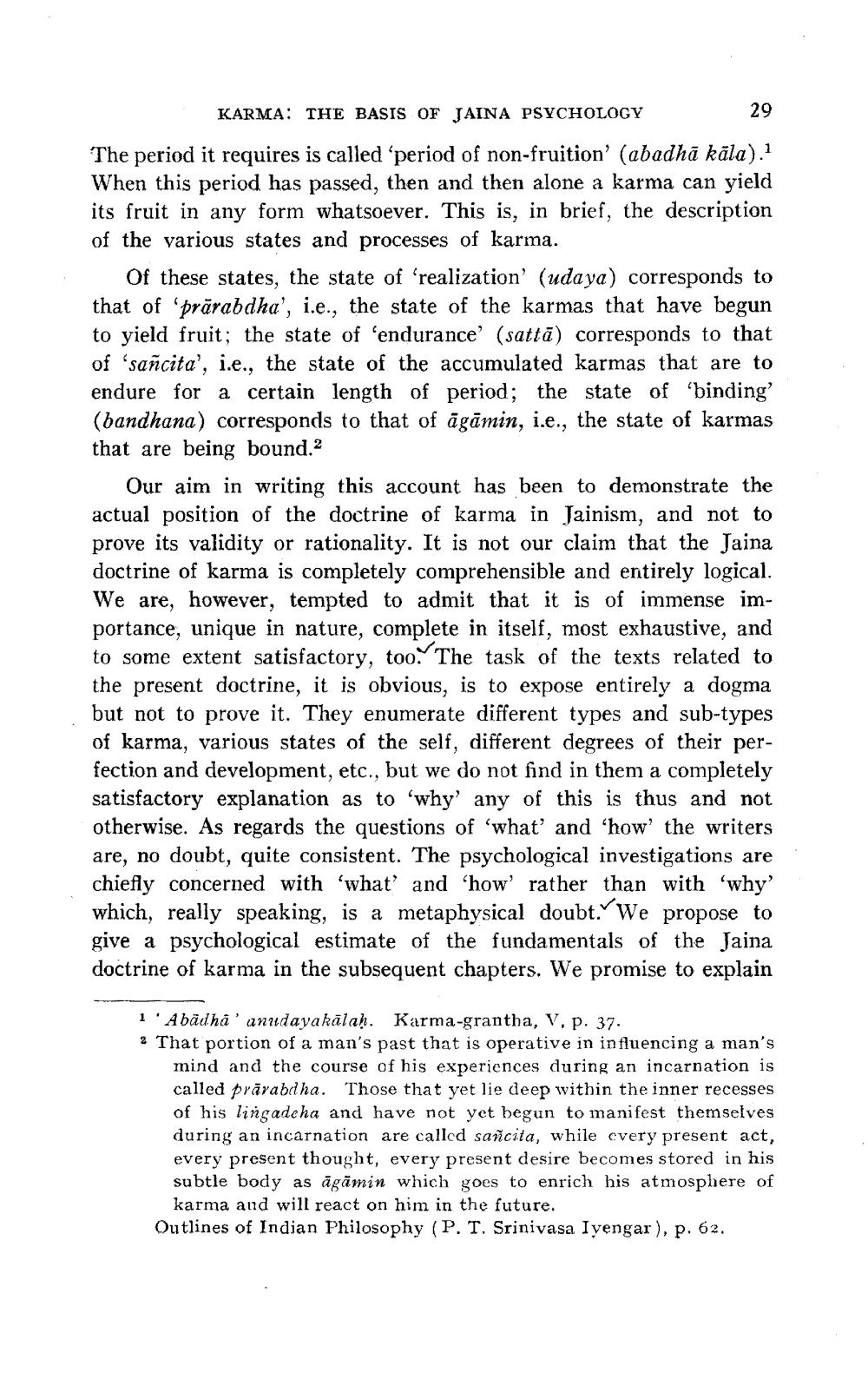________________
KARMA: THE BASIS OF JAINA PSYCHOLOGY
29 The period it requires is called 'period of non-fruition' (abadhā kāla). When this period has passed, then and then alone a karma can yield its fruit in any form whatsoever. This is, in brief, the description of the various states and processes of karma.
Of these states, the state of 'realization' (udaya) corresponds to that of 'prārabdha', i.e., the state of the karmas that have begun to yield fruit; the state of 'endurance' (sattā) corresponds to that of 'sañcita', i.e., the state of the accumulated karmas that are to endure for a certain length of period; the state of 'binding? (bandhana) corresponds to that of āgāmin, i.e., the state of karmas that are being bound.2
Our aim in writing this account has been to demonstrate the actual position of the doctrine of karma in Jainism, and not to prove its validity or rationality. It is not our claim that the Jaina doctrine of karma is completely comprehensible and entirely logical, We are, however, tempted to admit that it is of immense importance, unique in nature, complete in itself, most exhaustive, and to some extent satisfactory, too. The task of the texts related to the present doctrine, it is obvious, is to expose entirely a dogma but not to prove it. They enumerate different types and sub-types of karma, various states of the self, different degrees of their perfection and development, etc., but we do not find in them a completely satisfactory explanation as to 'why' any of this is thus and not otherwise. As regards the questions of 'what' and 'how the writers are, no doubt, quite consistent. The psychological investigations are chiefly concerned with 'what' and 'how rather than with 'why' which, really speaking, is a metaphysical doubt. We propose to give a psychological estimate of the fundamentals of the Jaina doctrine of karma in the subsequent chapters. We promise to explain
1 'Abādha'anudayakālah. Karma-grantha, V, p. 37. 2 That portion of a man's past that is operative in influencing a man's
mind and the course of his experiences during an incarnation is called prārabdha. Those that yet lie deep within the inner recesses of his lingadcha and have not yet begun to manifest themselves during an incarnation are called sancita, while every present act, every present thought, every present desire becomes stored in his subtle body as āgāmin which goes to enrich his atmosphere of
karma and will react on him in the future. Outlines of Indian Philosophy (P. T. Srinivasa Iyengar), p. 62.




